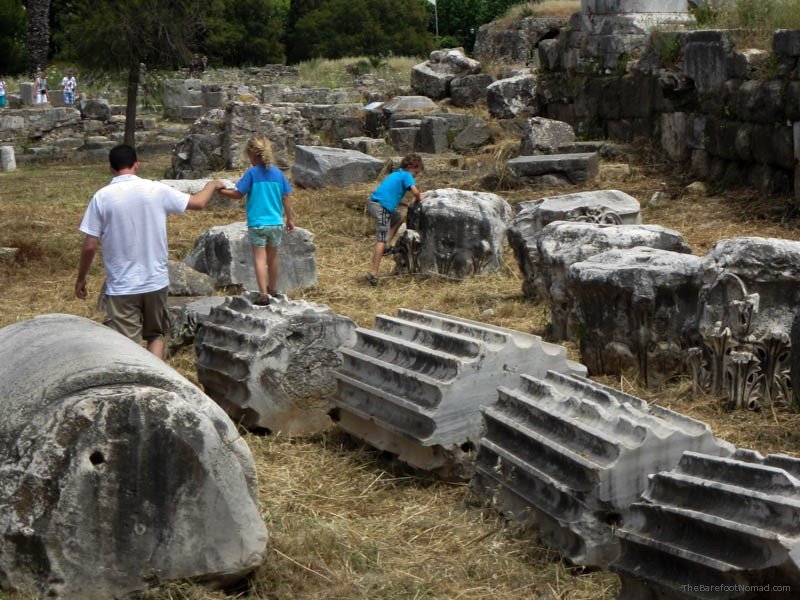We once stumbled upon a flight to Kos, Greece, so unbelievably cheap it felt like a dream. After months exploring Spain, we found ourselves wandering through ancient ruins with our children, tasting the sweetness of feta purchased directly from local markets, and swimming in water of impossible clarity. That spontaneous adventure existed solely because of a remarkable online deal.
But even then, a shadow lurked beneath the surface of those tempting offers. While many deals were legitimate, requiring only a bit of patience to unlock, we began to witness a growing darkness in the online travel world. Now, that darkness has evolved, becoming far more sophisticated and insidious.
Today, scammers wield the power of artificial intelligence to create remarkably convincing fake travel websites, emails, and even phone calls. AI has blurred the lines between reality and deception, crafting scams that can fool even the most experienced travel bargain hunters. It’s a new era of travel trickery.

One chilling tactic involves AI-generated voices mimicking airline or hotel representatives. These calls sound authentic, complete with calm, professional tones and accurate booking details. The goal? To extract your credit card information or other sensitive account details. The safest course of action is simple: hang up and contact the company directly using the official number listed on their website.
Then there are the flight deals that seem too good to be true – because they often are. AI can now construct entire fake booking websites, meticulously copying logos, designs, and even fabricating convincing reviews. You click, you pay, and then…nothing. Your seats vanish, and the website disappears into the digital ether.
Before you commit, scrutinize the web address. Look for subtle misspellings or unusual domain endings. Always prioritize credit cards over debit cards for added protection, and favor established booking platforms. Cross-referencing deals with trusted tools provides an extra layer of security.

We once received an email that perfectly mirrored a legitimate airline confirmation – the layout, colors, and wording were flawless. The only giveaway was a slight irregularity in the sender’s email address. AI is making these deceptive messages increasingly difficult to detect. If anything feels amiss, resist the urge to click any links.
Instead, navigate directly to the airline or hotel’s official website and confirm your booking. A few extra seconds of caution can prevent a significant headache. Don’t let excitement cloud your judgment.
Imagine this: you’re at the airport, juggling luggage and navigating the chaos, when a text message arrives claiming your flight is canceled. It includes a link to rebook immediately. Panic sets in, and you’re tempted to click. Airlines rarely communicate urgent updates via text, especially with random links. Always verify information through the airline’s official app or the departure board.

Over time, we’ve identified recurring patterns in these scams. Watch out for awkward grammar, unusual phrasing, requests for payment via bank transfer or gift cards, urgent demands for immediate action, and website links that don’t align with the official company address. Even seasoned travelers can fall victim when tired or distracted.
If you do find yourself targeted by a scam, act swiftly. Contact your bank or credit card company immediately to report the fraud. Change your passwords and notify the airline or hotel to flag the issue. Reporting the scam to your local consumer protection agency can also help safeguard others.
AI is reshaping the travel landscape, offering both incredible opportunities and new risks. The same technology that unlocks hidden gems and better deals can also be exploited to create remarkably realistic scams. A few moments of vigilance can make all the difference.

Next time you encounter an extraordinary travel deal, pause and verify its authenticity. Remember, the true reward of travel isn’t simply finding the cheapest fare; it’s the unforgettable memories created along the way. Protect those memories by traveling with awareness and caution.




